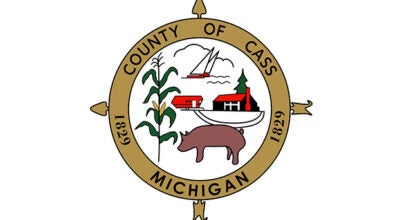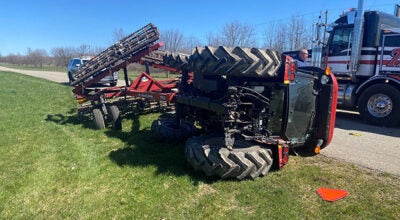Dementia expert shares advice for caregivers during COA conference
Published 4:49 pm Wednesday, May 13, 2015

Dementia expert Teepa Snow (pictured below) gives an animated presentation in front of area caregivers Tuesday morning at the COA Lowe Center in Cassopolis. (Leader photo/TED YOAKUM)
Nationally recognized medical expert Teepa Snow’s first experience in caring for someone dealing with the destructive condition of dementia didn’t come as part of a fellowship during her years of study in North Carolina.
It came when she was just 8 years old.
Long before the condition was well documented and understood by physicians, Snow and her mother were tasked with caring for her elderly grandfather. After years of dealing with complications due to black lung, the man’s memories began to falter in his advanced age, with him on some nights looking for his deceased wife or attempting to enter the apartment complex he used to manage, Snow said.
In contrast to her mother’s confrontational method of handling her ailing family member, the young Snow would try other, more emotional approaches to get through to her grandfather during one of his memory lapses.
“He would have the occasional odd episode, yet I would manage to handle them, even at the age of 8,” Snow said.
Since then, her life has been intertwined with the dementia, as she has spent most of her professional career showing others how to care for those afflicted by it.
On Tuesday, the colorful and animated educator shared her wisdom with professional and personal caregivers living in Cass County, during the COA’s first-ever Dementia Conference, held at the agency’s Lowe Center complex in Cassopolis. Speaking to a sold-out room that morning, Snow gave some hands-on instruction on how attendees can more effectively care for elderly patients dealing with memory loss and other adverse conditions caused by dementia.
Among her biggest pieces of advice for caregivers is to use a supportive tone when dealing with patients suffering from memory loss. For example, when communicating with someone who has trouble remembering the name of an item they need, caregivers should ask them to tell them more about it rather point-blank demand to know what they are talking, Snow said.
“By using a more supportive tone, you are communicating instead of arguing,” she said.
Snow has been working in caregiving for nearly her entire life, she said. During her early teenage years, she worked as babysitter for children with developmental disabilities. In fact, it was while working with one of these children, Michael, which prompted her to legally change her name from Teena to Teepa, based on how he used to pronounce it, Snow said.
A graduate of both Duke University and the University of North Carolina, the occupational therapist has been leading the charge in dementia training and education for years, serving with such organizations like the Alzheimer’s Association and the Alzheimer’s Foundation of America.
The term “dementia” refers to a wide range of symptoms associated with a decline in cognitive skills, which usually develop in people over the age of 65. While commonly associated with Alzheimer’s disease, the condition often manifests in a number of other problems, including loss of speech or motor skills, Snow said.
“It’s not about memory, it’s about brain failure,” she said.
With longer life expectancies and the Baby Boomer generation advancing in age, people exhibiting signs of the condition are slowly on the rise. Afflicting around one in five families today, that number could rise to as many as one in two in the near-future, Snow said.
“Until we can find a cure, we need to find the care,” Snow said.






